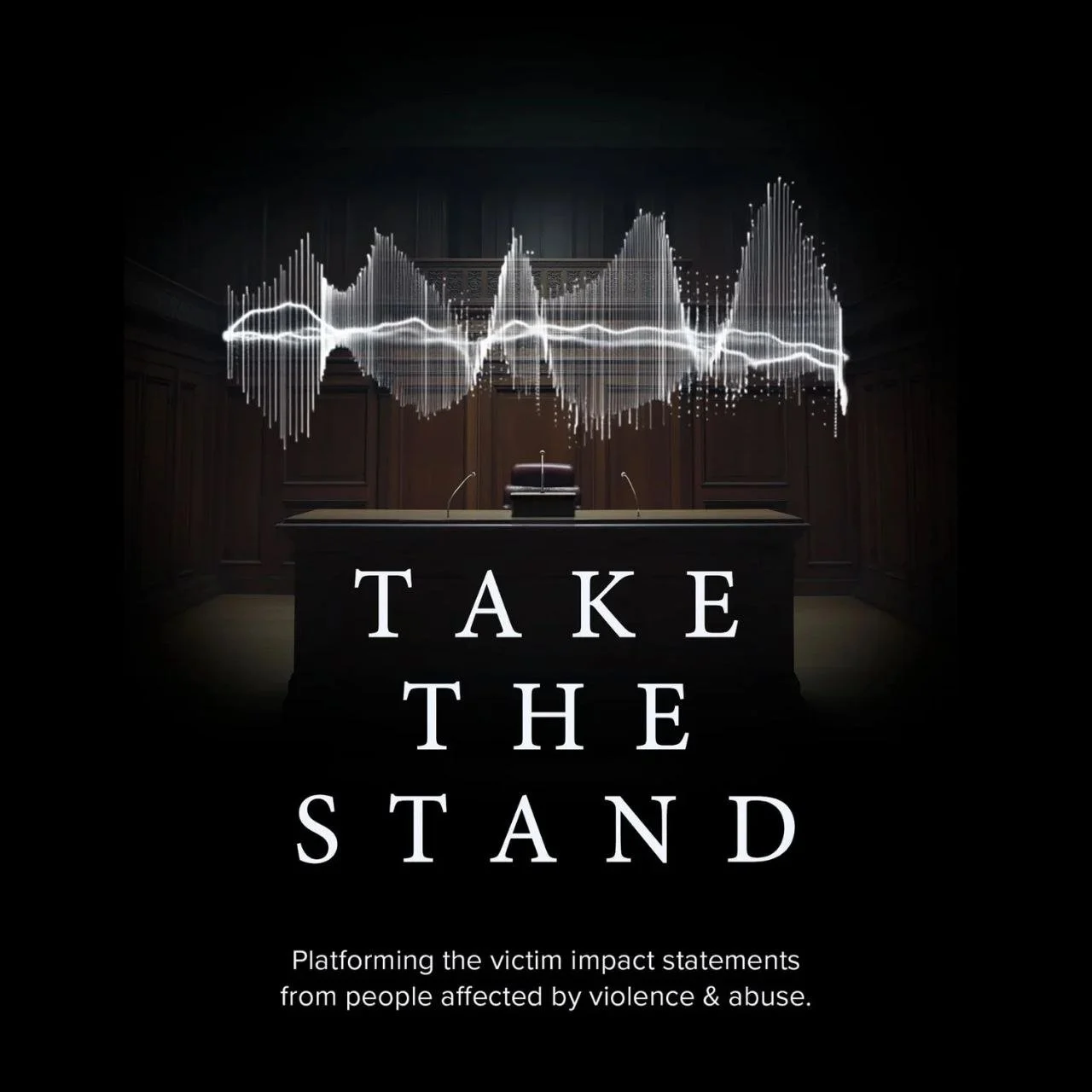Take The Stand
Reclaiming the Right to Be Heard
What happens when your story is asked for but never heard? For too many victim-survivors, that is the reality of writing a Victim Impact Statement. Take the Stand is a powerful new podcast changing that - by giving survivors the chance to say, out loud, what the justice system didn’t allow.
We sat down with the creators behind Take the Stand to hear more about where it started, why it matters, and what they’ve learned in the process.
What is Take the Stand about?
Take the Stand is a podcast created by and for victim-survivors who were encouraged to write Victim Impact Statements for court - only to find they were never allowed to read them out, were cut short, or were censored by the court or those in charge.
On our podcast, we invite survivors to read those statements out loud - exactly as they were meant to be heard. Each episode also explores the survivor’s journey through the justice process and how they felt afterwards. This is a space to reclaim voices that should never have been silenced.
What inspired you to start the podcast?
I know from my own experience that Victim Impact Statements often never see the light of day. I was asked to write one that was ultimately never read out in court. My words were meant to be heard, but I wasn’t given that opportunity. It was yet another moment of feeling voiceless - of not mattering.
One day, Sarah mentioned that someone she knew had experienced the same thing. We started talking and said, “What if we published them?” I said, “Let’s make a podcast where survivors can read them out loud.” And so, Take the Stand was born.
What do you want your listeners to take away?
We actually focus more on what the experience means for the survivor than the listener. The act of reading their statement - out loud, in their voice, without censorship - is deeply important. It’s about offering a space that feels safe and validating.
That said, the added power is in people listening to these stories. We want the public to understand the real, lived experiences of domestic and sexual abuse - and what happens in the aftermath. When the system silences victims, it compounds the harm. These stories need to be heard, and they deserve to be at the forefront.
What’s been the biggest challenge so far?
The emotional weight. For many of our guests, it’s the first time they’ve read their statements since writing them - sometimes after years. The process can be incredibly intense. And as producers, holding space for that is a responsibility we take very seriously. Listening to stories of women who were denied justice is heartbreaking - but it’s also a constant reminder of why this podcast matters.
Another huge challenge was the legal side. It took us almost a year to make sure everything was safe, ethical, and compliant. We had to obtain the right legal advice and implement trauma-informed practices from the outset.
How do you choose your guests?
Our guests are survivors who want to reclaim their voice and share their experiences through their Victim Impact Statements. We work closely with each individual to ensure they feel safe, supported, and empowered.
A good episode isn’t just about the audio - it’s about the process. It’s about helping the survivor take back control of their story, on their terms.
What’s one thing you’ve learned since starting the podcast?
How healing it can be for victim-survivors to finally read their statements out loud. They’ve told us that doing so has been incredibly empowering - that for the first time, they felt truly heard.

